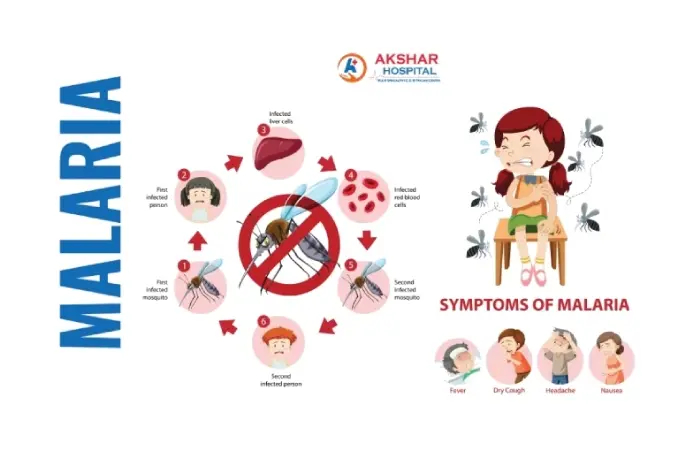
Prevention and Precautions For Malaria
Malaria is a preventable and potentially life-threatening disease caused by Plasmodium parasites and transmitted through the bite of infected mosquitoes. Understanding how to prevent malaria is crucial, especially if you live in or travel to areas where the disease is endemic. Here's a comprehensive guide on malaria prevention and precautions
Use Bed Nets
Sleeping under insecticide-treated bed nets is one of the most effective ways to prevent mosquito bites at night.
Ensure that bed nets are properly tucked in and don't have holes.
Insect Repellents
Apply insect repellents containing DEET, picaridin, or other recommended ingredients to exposed skin and clothing.
Follow the product instructions carefully, especially when applying to children.
Wear Protective Clothing
Cover exposed skin by wearing long-sleeved shirts, long pants, socks, and shoes, especially during evenings and nights when mosquitoes are most active.
Stay Indoors
Avoid outdoor activities during peak mosquito-biting hours, typically from dusk to dawn.
Use fans or air conditioning to keep indoor environments cool and mosquito-free.
Remove Mosquito Breeding Sites
Eliminate sources of standing water around your home, as they serve as breeding sites for mosquitoes.
Empty, cover, or treat containers that collect water, such as flower pots, gutters, and birdbaths.
Antimalarial Medications
If you plan to travel to a malaria-endemic region, consult a healthcare provider for advice on appropriate antimalarial medication.
Begin medication as prescribed before your trip, continue during your stay, and follow the recommended course after returning home.
Pregnant Women and Children
Pregnant women should take extra precautions to prevent malaria, as it can have serious consequences for both the mother and the baby.
Children are particularly vulnerable to malaria, so ensure they are well-protected from mosquito bites.
Seek Medical Advice
If you develop symptoms like fever, chills, headache, and fatigue, especially after visiting a malaria-endemic area, seek medical advice promptly.
Early diagnosis and treatment are essential for a full recovery.
Traveler's Tips
Travelers should be aware of the malaria risk in their destination and take appropriate preventive measures.
In addition to medication, use bed nets and insect repellents, and stay in air-conditioned or well-screened accommodations.
Community Efforts
Malaria control programs often involve community-based efforts to raise awareness, distribute bed nets, and conduct indoor residual spraying to reduce mosquito populations.
Malaria Diagnosis
If you suspect malaria, a healthcare provider can perform diagnostic tests, such as blood smears or rapid diagnostic tests, to confirm the presence of the parasite.
Accurate diagnosis ensures appropriate treatment.
Understanding malaria symptoms and risk factors, combined with taking these preventive measures, can significantly reduce your risk of contracting malaria. Remember that prevention is the best approach to safeguard yourself and your loved ones from this potentially serious disease.




